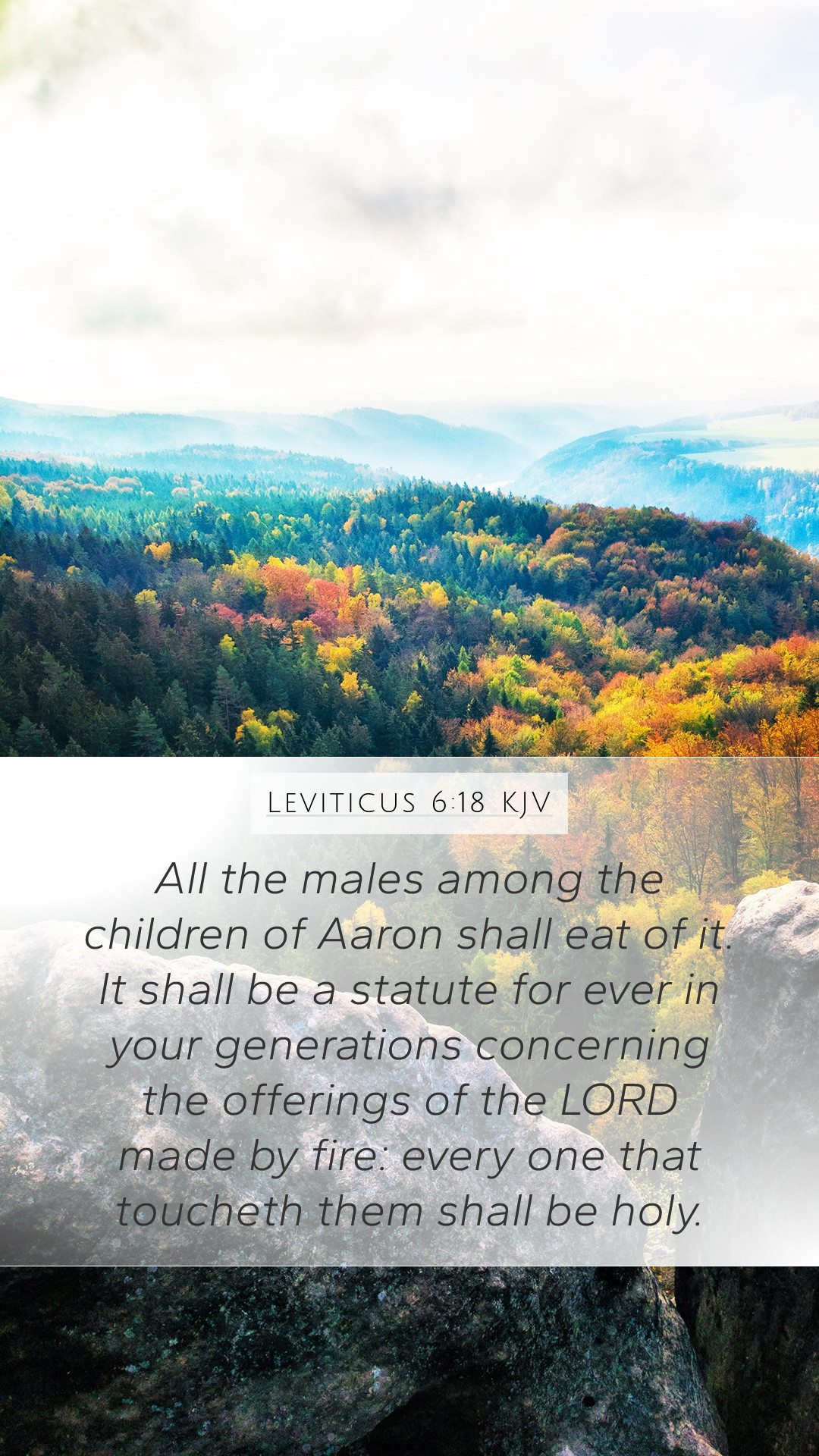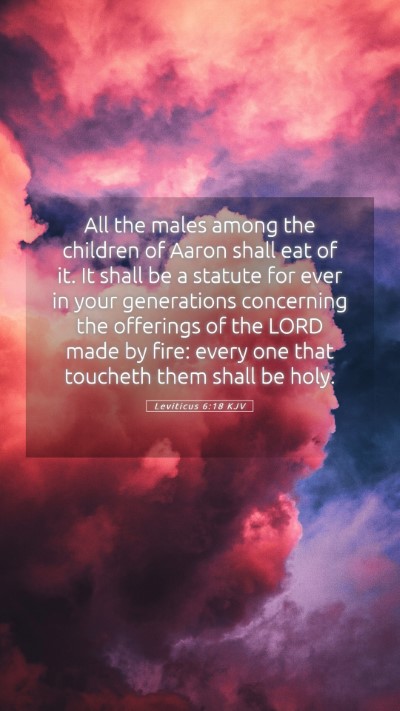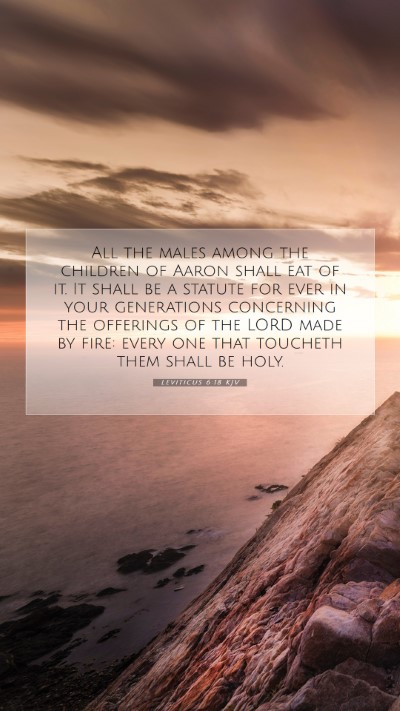Understanding Leviticus 6:18 - A Comprehensive Commentary
Leviticus 6:18 states: "All the males among the children of Aaron shall eat of it; it shall be a statute forever in your generations concerning the offerings of the Lord made by fire. Everyone who touches them shall become holy." This verse articulates specific instructions regarding the offerings made to the Lord, emphasizing both the dietary stipulations for the priests and the sacredness of the offerings. To delve deeper into this, we can glean insights from various public domain commentaries.
Context and Meaning of Leviticus 6:18
The Book of Leviticus, primarily a manual for priests, outlines the laws and regulations pertinent to worship and sacrifices. In this chapter, God’s instructions to Moses about the manner and recipients of offerings are pivotal for understanding the intention behind the sacrificial system.
Insights from Matthew Henry's Commentary
- Appointed Recipients: Matthew Henry points out that the offerings serve a dual purpose: honoring God and providing sustenance to the priests. The instruction that all males among Aaron’s descendants partake signifies their elevation to a position of sacred duty and blessing.
- Statute Forever: This directive is described as a lasting ordinance, emphasizing that these rituals were to maintain a continuous relationship with God throughout generations. The evident permanence illustrates the importance of holiness in worship.
- Touching the Offerings: Henry notes that anyone who touches the offerings is made holy, indicating that participation in sacred acts and the offerings itself infuses the community with holiness.
Albert Barnes' Reflections
- The Role of the Priesthood: Barnes highlights the leadership of the priestly line, focusing on their unique relationship with the sacrifices. The consumption of the offerings symbolizes their vital spiritual leadership and provision for the community.
- Sacredness of Offerings: Furthermore, he points out that the offerings, being set apart for God, become a shared covenant that binds the people of Israel to their divine calling.
- Generational Instructions: The notion that these practices are for "your generations" stresses the importance of teaching subsequent generations about holiness and the proper worship of God.
Adam Clarke's Observations
- The Consumption and Holiness: Clarke indicates that this verse emphasizes how the act of consuming the offerings is intrinsically tied to the holiness expected of the priests. Their participation is not merely symbolic but a direct engagement with the divine.
- Significance of the Offerings: He elaborates on how these offerings, especially those made by fire, are considered pure and worthy, reflecting the perfect nature of God. The directive towards Aaron’s descendants symbolizes the continuation of this divine purity through their lineage.
Applying Leviticus 6:18 to Modern Life
This verse can spark a multitude of pertinent discussions in Bible study groups and online Bible study forums about the nature of holiness and its requirements in worship today. It invites believers to reflect on how they honor offerings and worship practices in contemporary contexts.
Key Takeaways
- Importance of Holiness: Just as the offerings were to be treated with reverence, so should our worship and acts of service be conducted with intentionality and sacredness.
- Legacy of Worship: Understanding that worship practices have generational implications can motivate believers to educate the next generation about the importance of reverence in their spiritual lives.
- Encouragement of Community Participation: Inviting others to engage with offerings — whether time, talent, or treasure — fosters a communal expression of faith.
Cross References
- Exodus 29:31-34: Instructions regarding sacrificial offerings to God and their significance.
- Numbers 18:11: Discusses the shared nature of the priestly portion from offerings and how they are treated.
- Hebrews 13:15-16: Relates worship and offerings in the Christian context, providing a New Testament perspective on sacrifice and holiness.
Conclusion
Leviticus 6:18 serves as a rich ground for Bible study insights and Biblical exegesis. By exploring its commands and implications, believers can glean deeper understanding and appreciation of God's design for worship, holiness, and community. As you study this verse, consider how your own worship practices align with the principles expressed in Scripture.


